On Air Now
The Radio X Indie Night with Rich Wolfenden 7pm - 11pm
5 December 2024, 15:00
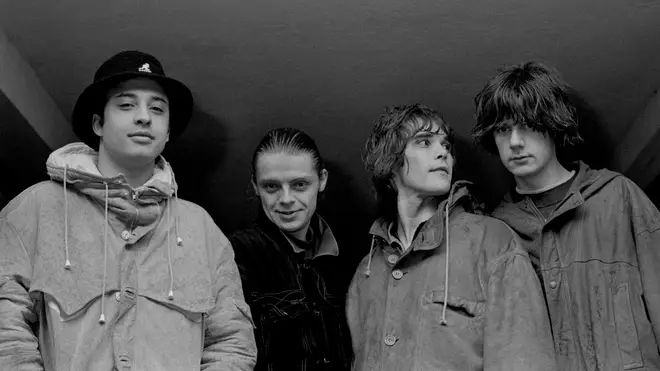
There was a gap of over five years between The Stone Roses' 1989 debut and the follow-up, The Second Coming, in 1994. What were the band doing in all that time?
On 9 June 1990, The Stone Roses took to the stage at Glasgow Green to perform in front of 10,00 people. They were at the height of their powers. The show followed the high-profile gig at Spike Island in Widnes at the end of May and came weeks before the release of their new single, One Love.
Little did they know that it would be the last gig that Ian Brown, John Squire, Mani and Reni would play in front of an audience for five years.
Why did The Stone Roses go on hiatus, just as the country's love affair with them was at its height? Why did they take five years to follow-up their classic self-titled debut album? The story begins back ar Glasgow Green...

Stone Roses I Wanna Be Adored - Live in Glasgow Green 09/06/1990
Glasgow Green took place two weeks after the landmark Spike Island gig and became the final Stone Roses show for five years. 10,000 people paid £14 each to cram into a big top at the part in Glasgow city centre to hear the following anthems:
I Wanna Be Adored
Elephant Stone
She Bangs The Drums
Shoot You Down
One Love
Sally Cinnamon
(Song for My) Sugar Spun Sister
Standing Here
Fools Gold
Where Angels Play
Waterfall
Don't Stop
Made of Stone
Elizabeth My Dear
I Am the Resurrection

The Stone Roses - One Love (Official Video)
The Roses had been recording sporadically during the early months of 1990, but when their producer John Leckie arrived at the studio, he found the band had only written two songs - and he wasn't impressed with either of them. Setting back to work, it took around three months to write and record the two sides of the next Stone Roses single: One Love and Something's Burning. It's not a million miles away from the baggy shuffle of Fool's Gold, but the band's stock was so high at the time that the single made it to Number 4 in the charts. It'd be another four and half-years before the world would hear any new material from the Roses.
After the stellar success of the 1990 shows, the Roses set to work on their second album in earnest. However, rehearsals in Wales in January 1991 didn't produce any usable material, while the band's manager Gareth Evans started to look for a bigger and better record contract that befitted the huge stars he had on his hands. Silvertone, who the Roses had signed with in 1988, took legal steps to prevent the band from walking. This was to be the start of a protracted legal battle.
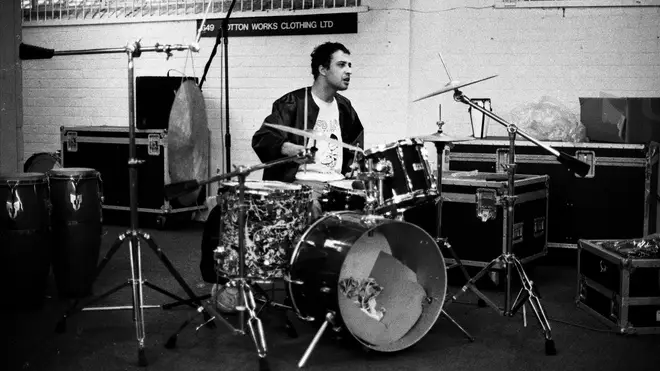
The band went through the legal process to have Silvertone's legal injunction lifted. Ian Brown told Melody Maker: "Silvertone have got us for 35 years - we'd have only got ten for armed robbery."
Silvertone disputed this and claimed that they just wanted to see the band make another record. However, the Roses' solicitor, John Kennedy, said that the band had signed "Undoubtedly one of the worst contracts I'd ever seen".
Brown said at the time: "It was only when we became successful in their terms that they wanted to sort out a decent contract. We were angry with the company because we considered them to be slow. They could not understand our potential."
One label who could see the potential of The Stone Roses was the American-owned Geffen imprint, who were rumoured to be offering the band a huge sum.
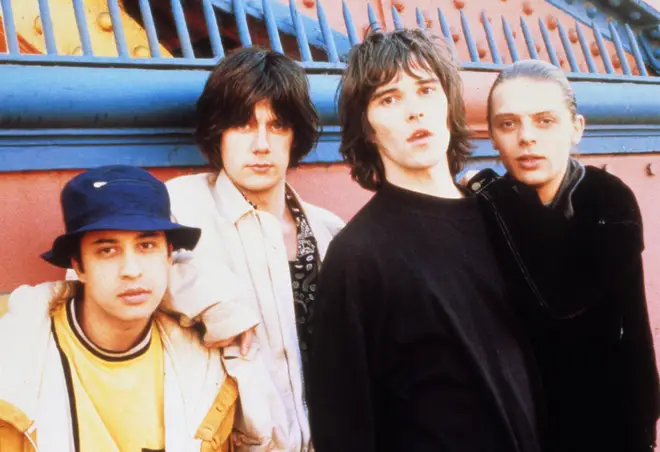
Geffen told the band that they would help pay their court costs. But, for John Squire, it felt for a time like the Silvertone injunction would stop The Stone Roses in their tracks. He recalled in 1993: "I remember looking at the very real prsopect of never making another record and just doing gigs. We all agreed that if we couldn't get out of the deal, we were prepared to take it that far."
Solicitor John Kennedy described the situation: "The worst case scenario was that if they didn't win, they'd be forced to work with Zomba [Silvertone's parent company] again. That's a a bit like a divorce court telling a couple they have to go back and live together again."
But in May of 1991, the law came down in favour of The Stone Roses. The deal with Silvertone was dissolved, leaving the label to try and gain some money back from the court costs by re-releases old Roses material in new ways.
Now free from their old label, the band signed with Geffen, giving each member a reported £125,000. Mani told Mojo magazine: "We all went to the south of France and hired a helicopter and stayed in £500-a-night hotels for a few weeks. We went, ‘Right, let’s f**k off and spend some money’."
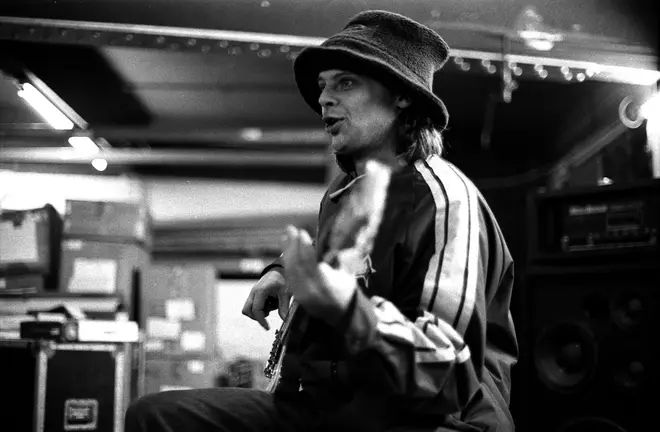
One repercussion of the Silvertone case was that the band became disenchanted with their manager Gareth Evans. Stories such as him withholding a bonus worth £40,000 to each member didn't go down well with the musicians. Squire recalled in 1997: "Things came out in the first court case that lost us any faith we still had in the manager, so he went. And the result of the case was us signing with Geffen. So we ended up with no manager, pots of money and three kids."
Sessions for what would become The Second Coming became prolonged and tortuous. John Squire told The Guardian in 2002: "When my daughter Janie came along, we had to go away to write, because we couldn't get enough time together on our own. We went to the Lakes, Scotland. But very little came from those trips. The partnership was drying up."

The new year saw the Roses book the studio Square One in Bury for a year - according to Andrew Perry in The Telegraph in 2017, the results were songs written by Squire with lyrics that Ian Brown felt uncomfortable singing.
After masterminding the successful debut album and working on One Love, the veteran producer abandoned the band in the summer of 1993. "That period was a disaster,” he told Mojo. “By the time we got to the studio, it would be 10 or 11 o’clock at night. There were always problems: power cuts, electrical things, people disappearing." The band booked Rockfield Studios in Wales for six weeks, and told Leckie they'd be there the following Monday. They turned up on the Wednesday. This prompted Leckie to quit and his place was taken by first Paul Schroeder, then Simon Dawson.
Leckie later told The Quietus: "They'd changed from being a unit. That bond didn't exist between them." The work at Rockfield dragged on for another 14 months and cost an estimated £250,000.

The Stone Roses - Love Spreads
4 years, 4 months and 19 days after the release of One Love, the world was able to get their hands on a new Stone Roses single. With Nirvana defunct following the tragic suicide of Kurt Cobain that April, the Roses were now Geffen's big alternative rock prospect and exerted pressure on the band to complete the album. The song was accompanied by a very lo-fi video, but it did the trick and the single crashed into the UK charts at No 4 - only Elton John, Pavrotti's Nessun Dorma and Craig "Henry off Neighbours" McLachlan came between the Manchester band and chart supremacy.
The album went straight into the UK charts at Number 4 - this would be its highest chart position. To date, it's the final Stone Roses album - despite two new tracks emerging when the band reunited in 2012, it looks like it's all over.
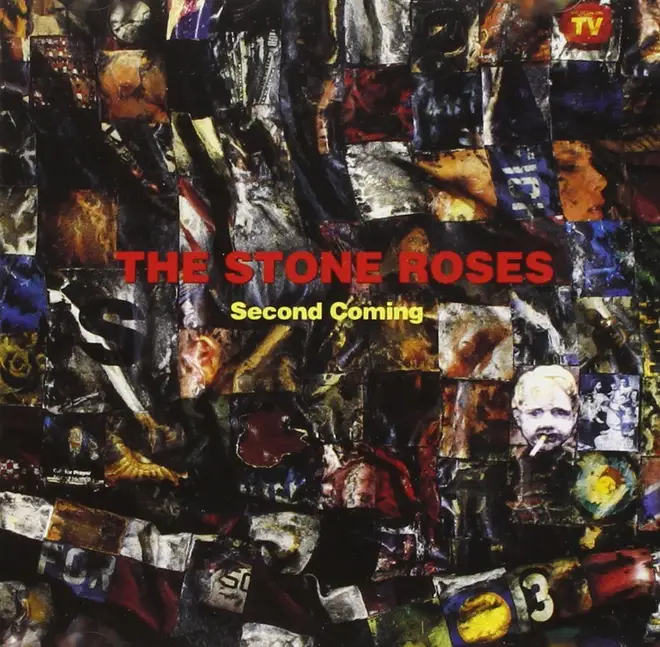
Quotes from Brown, Squire and John Kennedy are taken from The Stone Roses Talking by Brian Chapman, 2011
Other sources: